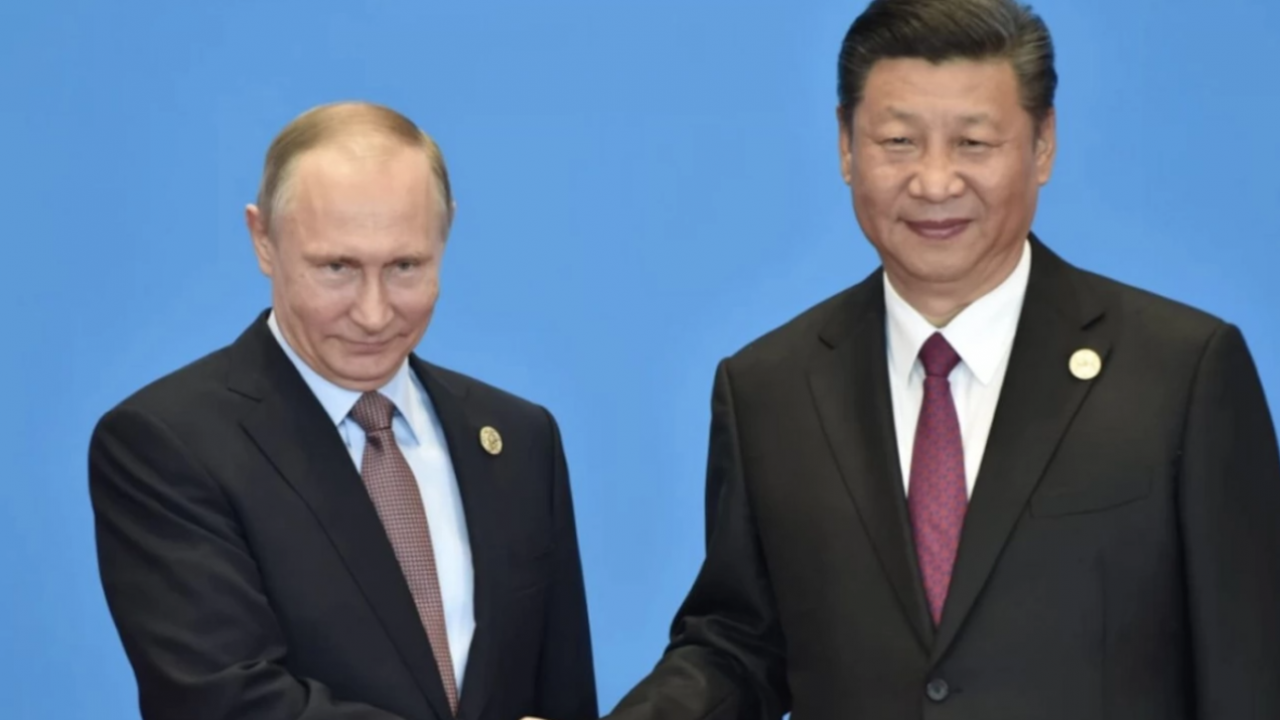Listen to the news
Protection of the national interest or its sabotage is the position of our country against the background of the ongoing European solidarity? What does Bulgaria gain and what does it lose in Radev's attempts to maintain maximum neutrality? Assoc. Georgi Tsvetkov, an expert on security and defense, commented on the topic on Darik Radio.
All about the topic:
Russian invasion of Ukraine 9950
Bulgaria will not provide fighter jets, missile systems or tanks to Ukraine while running a caretaker government.
Nor will our country support the general order for the supply of shells to Ukraine, which will involve 18 European countries.
This is what President Rumen Radev told journalists on Tuesday.
The President confirmed his thesis that our country would support diplomatic efforts to achieve peace against the background of the landmark meeting under the same pretext between the President of Russia Vladimir Putin
Vladimir Putin - Russian politician.
Born on October 7, 1952 in Leningrad, now St. Petersburg. President and President of China Xi Jinping.
"This position says that the country will not participate, but it will not interfere either. The Bulgarian position is somewhat justified, because we do not have stocks and because, on the other hand, there are Bulgarian companies that produce such projectiles. Regarding the provision of own stocks of Soviet calibers - from on the one hand, Bulgaria is not involved, and on the other hand, on March 17, there is a decision of the Council of Ministers, with which, in fact, ammunition worth about BGN 350 million will be provided from the military reserves to the Sopot military base," said the expert.
"Within this one year since the beginning of the war, Bulgaria continues to follow the same policy, in which it very strongly declares itself for peace negotiations and in no way participates in the conflict, and at the same time decisions are made to sell significant quantities of ammunition." he added.
The European Defense Agency will likely award separate contracts to individual companies.
This position will be taken here again, because these are commercial relations between the parties.
How useful this position is, I don't know.
In my opinion, there are strengths in this position," Tsvetkov commented.
Bulgaria continues to claim that it cannot exchange its old Soviet weapons for Western ones within the so-called
triangular deals, as Greece and Slovakia did.
Is it really so?
"Certainly, these possibilities are decreasing, but they are not exhausted. The last example is from Slovakia. We should not perceive that it is a matter of necessarily replacing one type of armament. In their case, it is about helicopters. There are different possibilities for replacement. Another important point is the deadline. We cannot expect that such transactions can lead to the replacement of the equipment immediately," the expert specified.
"If there is an opportunity to temporarily maintain the MIG-29, a certain amount of these aircraft should be maintained, so as not to reach a situation in which the Bulgarian Air Force is completely grounded," said Tsvetkov categorically.
Chinese President Xi Jinping ended his three-day visit to Moscow with a strategic agreement and proposed peace plan.
Does this strengthen Putin's position or subordinate Moscow to China - a new big brother?
Xi Jinping to Putin: Take care, my friend!
A change unseen in 100 years is coming
"The Chinese proposal is not something that is new. A strategic partnership means ensuring China's access to energy resources. What Russia will get in return remains to be seen. China will make the most of the conflict to increase its influence on Russia", the expert believes.
"The Chinese proposal largely follows the logic of the peaceful options offered by the Western countries. Another important point is that this war will have a minimal impact on the world economy, with a special point being the grain trade. China's main interest is to guarantee its access to resources." , he concluded.
Russian invasion of Ukraine
Vladimir Putin
Russia
China
Xi Jinping
